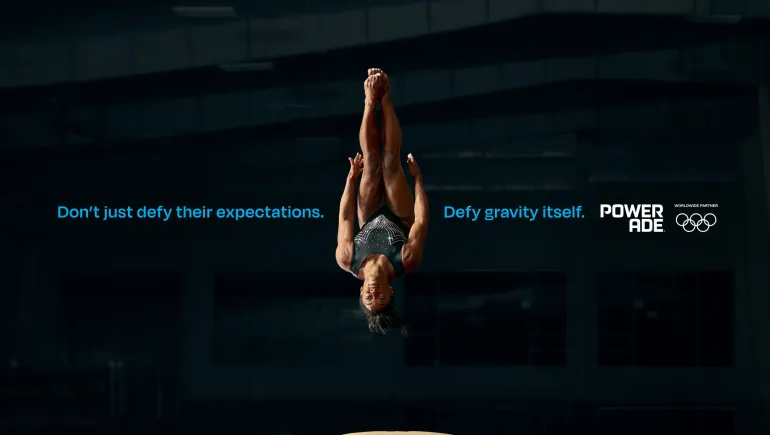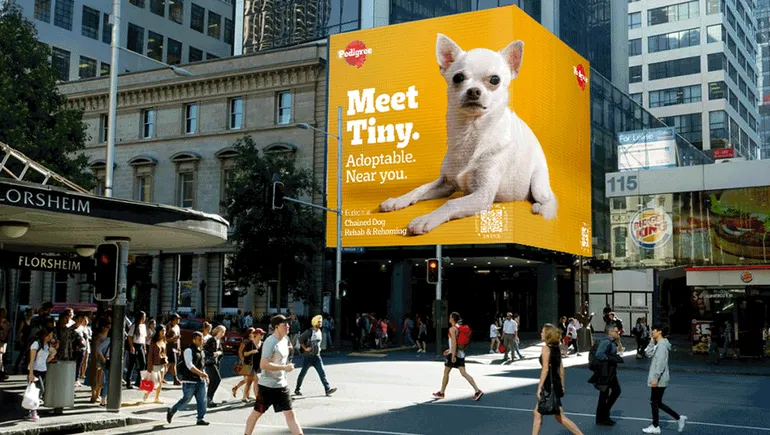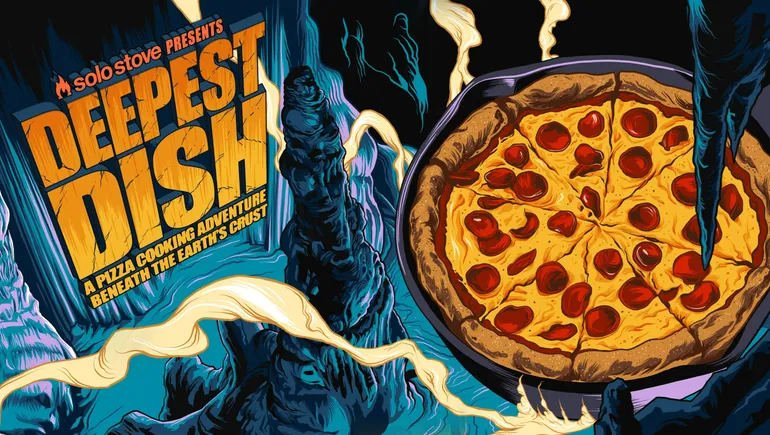
Why Heineken is ramping up investment in consumer experiences
As the world continues to reopen and the demand for in-person experiences rises, Heineken is making a concerted effort to boost awareness and sales by integrating its product into popular cultural happenings, including sporting events and music festivals, in order to reinforce its premium positioning and build on its status as the third-most popular imported beer in the United States.
“[Imported has] always been, in the U.S., short-hand for ‘premiumness’ to an extent,” said Jonnie Cahill, CMO of Heineken USA. “It’s one of the few markets in the world where import or domestic is in fact, a choice that’s offered. You see it on menus, you see it in conversations, you get asked that question by bartenders, which doesn’t really happen anywhere else.”
Heineken’s focus on live events and premiumness comes as the imported beer market takes on renewed buoyancy in America. Heineken saw a 0.2% sales bump between 2020 and 2021, pulling in over $916 million, according to a report by Beverage Industry. Despite the strong performance, Heineken lags behind Anheuser-Busch InBev owned heavyweights Modelo and Corona, which did $3.3 billion and 2.8 billion in sales in 2021 respectively. For Modelo, that performance marked a 14% increase from the prior year. Heineken’s sister brand Dos Equis XX did $464 million in sales, unseating AB InBev owned Stella Artois for fourth place.
In a conversation with Marketing Dive, Cahill, who has served as Heineken USA’s CMO since 2018, discusses the return of in person events, capitalizing on the brand’s imported status and how the marketer balances real-life events with virtual ones.
This interview has been edited for clarity and brevity.
MARKETING DIVE: How is Heineken adapting to a world looking to move past the pandemic?
JONNIE CAHILL: We are delighted that in person is back. Of course, there are restrictions and things are a little bit different than they used to be. But those platforms for us… things like Champions League, Major League Soccer and Coachella are opportunities for us to demonstrate premiumness. And premiumness is something you can say. It’s something you can show, but it’s very important that premiumness is something that you do.
And so, the events that we associate with a brand like Heineken confirm the brand positioning. We have a very simple test: does it feel right for the brand? And if you said to people again, ‘who do you think the beer brand would be at Coachella?’ They understand why we’re there. Because the values are quite similar. The environment is very premium, it’s quite cool. If you asked what’s the beer brand of NASCAR, they wouldn’t think it would be us, for the very converse reason. And that’s okay.
We are using those touch points and those physical interactions when people are having fun to really reinforce positioning and remind them of the premium nature of, in fact, all of our brands and really bring it to life. It’s a disproportionately important marketing tactic when you’re in premium. And you would see that if it’s us or BMW, these are all brands that do things as well as say things. And so, post-pandemic, we’re glad it’s back. It has us busy again, and there’s a lot of moving parts. We have some new partnerships like Formula 1, but it’s really exciting to be back out there.
Heineken is primarily a European brand. How has the company capitalized on that?
CAHILL: I think what we’re layering on now is a nice combination of globally iconic events and domestically relevant events that are also quite iconic. So, if you look at soccer, for example, not only do we partner with Los Angeles FC or NYCFC in Major League Soccer, we also are the global partner of the UEFA Champions League, which is the very iconic, very elite end of the sport and these are local passion points. You have Formula 1, a very iconic global property, fastest growing viewership driven by things like Netflix and “Drive to Survive,” their show, which has driven fandom and Formula 1 through the roof. And so that might be global and iconic.
But we also show up in Miami, we show up in Austin, we’re going to show up in Las Vegas for the Formula 1 Grand Prix race. We have always stood for premium positioning. We’re very fortunate we have an iconic packaging format in Heineken, that green bottle is like the Coca-Cola bottle, right? It’s just associated with us. We are bringing together the global, magnetic premium events and activating them on the ground in the US, but in a very Heineken way. So the standard doesn’t change. It’s iconic. It’s fabulous. It’s magnetic. It’s fun.
How is Heineken leveraging U.S. events globally?
CAHILL: There are other properties that are more local to the U.S. like the U.S. Open, which originates here, or Coachella which originates here. But if you also look at them, they are also globally iconic. It’s not like the U.S. Open is only watched here in the U.S. I mean, everyone in the world is watching it. It’s not like people in Spain or Germany or Australia, have never heard of Coachella or don’t want to go. So, we have this beautiful synergy where we have iconic global events coming into the U.S. and U.S. events that in theory are local, that are really magnetic globally. So, if you’re Heineken USA, you win because of the decisions your colleagues are making in Amsterdam. And if you’re our colleagues in Amsterdam, you’d like very much that we’re doing Coachella, because again, that’s the same kind of thing that you would expect from us. So it’s a very efficient model.
For the consumer, it’s really consistent. Because if you think of our brand, you don’t have to worry about is it sports, is it music, is it digital? How we show up, it’s just in a very particular way and that consistency reinforces premiumness and of course, the premiumness protects you in terms of market share, and allows you to then push on and do other great stuff. So, I think you’d meet some marketers and some CMOs, who discuss this tension between local versus global but in our case, it’s a beautiful combination. So we feel very fortunate.
How does the desire for premiumness extend to sports and diversity?
CAHILL: We are the official partner and first founding sponsor of Angel City FC, which is a completely female-led soccer franchise out of L.A. with a very iconic ownership group. They are doing amazing things in the community. We partnered with Angel City FC long before they were functioning as a franchise because we were like, “Let’s get on here and let’s do this together.”
For us, when we look at sports particularly, we’re layering on more and more equally iconic sports, and our most recent soccer campaign ends with the line “passion knows no gender.” And it’s an ad about soccer. And forever, those ads looked like they looked. You know what they look like, this one does not look like those. There are hardly any men and that’s a beautiful thing. Because passion doesn’t know gender.
And who says this is the only place you should go or where brands should prioritize themselves? We have lots of diverse drinkers, we have lots of people who love our brand, male and female. And if we can layer on iconic women’s sports properties, we will. For us as a brand, we are thrilled to do it. It’s also the right thing to do. But we are not looking at it through the lens of gender, we’re looking at it through the lens of being iconic, being premium, being cool enough, being progressive being open minded, all the values that the brand has, and gender is in there.
And soccer, of course, in the U.S. has a growing and strong following, very multicultural, very urban, very diverse. We just may be different from some of the “traditional” mega sports. And there’s no doubt that appeals to us because we’re not the world’s biggest beer brand. But we are the world’s most global beer brand. Everywhere you can get us in 175 countries. We’re everywhere. And so diversity is kind of important to us in that respect. So, we see that soccer is a great platform for us.
How is Heineken balancing in-person events with virtual ones?
CAHILL: I think the question even extends to not only digital and the metaverse, but also traditional media, which is frequency and eyeballs, and then what you do in person. I think with most of the CMOs you talk to, what keeps us up at night is cracking the balance between how much you show physically, as we say, in real life versus traditional media types, which are still important. You still need some connected or linear TV to drive mass market awareness, which is generally good for brands versus the emerging technologies.
We are constantly evaluating that blend. If I go back three, four years, our percentage of digital, which is a very broad term, was probably 20-30% of the spend, it’s probably around 50% now. So there’s been, as you’d expect, a relentless digitization of our marketing activity for targeting reasons. But what’s interesting for us is with the exception of the COVID challenge and those years where there was a physical restriction… our investment in sponsorship and consumer experiences is, I would say, increasing. Because what we’re seeing is, as more and more of your life is spent in digital environments like this, it becomes more and more fun, and more and more engaging when real things are happening… We can chat here for three hours, which will mean looking forward to meeting you in the bar more the next time than less.
Has the company used digital events to enhance in-person ones?
CAHILL: We see that the role of experience is actually more valued than was the case because people are spending more time in less personal, less experiential environments. And so if you look at what we do on Heineken, or what we do on Dos Equis… we make tailgates amazing. We explode out the joy of tailgating. Our college football partnership with Fox was just nominated for an Emmy as a beer brand. So, we find magical ways to elevate those moments. Because actually, if you haven’t been tailgating for two years, and you’re an Aggie, or you’re a Bulldog or you’re a Hurricane, or whatever, how much fun is that? And that’s a really crucial moment for a beer brand. Because we are in the business of bringing people together. Our business isn’t the business of beer, it’s the business of sociability and fun, enjoyment and togetherness, that’s what we sell. So those physical manifestations of moments are super important.





